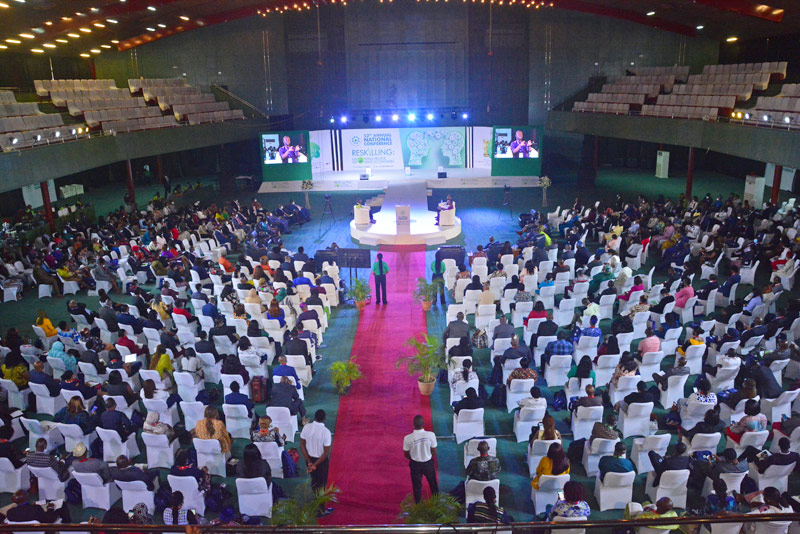The workplace is not merely a setting for productivity and economic activities but also a space where people spend a significant portion of their lives, seeking safety, dignity, and respect. It is the responsibility of people managers to comprehensively address harassment, bullying, and violence due to their significant impact on employee performance and well-being, and to propose visible solutions. Research shows that women experience sexual harassment more frequently than men. Therefore, decisive action must be taken to create workplaces where every individual feels safe, valued, and empowered to perform at their best. These issues not only undermine employee well-being but also erode organisational culture and performance.
As HR leaders and professionals, setting standards for behaviour in our organisations is essential. People managers must implement policies that protect employees and foster a culture that rejects all forms of harassment and bullying. They must also exemplify professionalism, free from bullying, violence, and sexual harassment, ensuring they are not contributing to the very issues we seek to eliminate.
Understanding Harassment, Bullying, and Violence from a Professional Perspective
Harassment refers to unwanted and unwelcomed behaviours, comments, or actions perceived as hostile. Many individuals have encountered derogatory remarks, non-verbal gestures, or unwanted physical contact, all of which are forms of harassment. As HR practitioners, it is crucial to remain aware of our behaviour, as what might seem unintentional can sometimes be perceived as harassment.
Bullying involves a power dynamic, where the recipient feels subjected to repeated, intentional actions aimed at harm or intimidation, whether verbal or physical. For instance, raising one’s voice can be perceived as aggressive and interpreted as bullying in certain cultures.
Violence, including physical acts such as aggression, assault, or battering, is a form of harassment that can manifest in the workplace, particularly in cases of sexual harassment. Victims may not always have the confidence to speak out, which highlights the importance of empowering employees to report such incidents.
Reasons for Resorting to Harassment, Bullying, and Violence
Several factors contribute to bullying, harassment, or acts of violence:
- Power dynamics or the desire to assert power: Some individuals use bullying, harassment, or violence as a means of coercion to have their demands met.
- Socio-cultural norms: In some cultures, individuals, particularly men, may feel entitled to assert dominance over others.
- Self-entitlement: Individuals may feel their perspectives should be unchallenged, leading to poor interaction with people of different backgrounds.
- Social perspective: Our upbringing influences how we engage with others, and we often replicate behaviours from our formative years.
Triggers for Harassment, Bullying, and Violence
While no specific event always triggers these behaviours, they often arise due to a permissive workplace culture. In some cases, bosses may use harsh language towards employees without recognising it as bullying or harassment, which goes unchallenged. In contrast, organisations such as the United Nations have policies that encourage accountability, leading to a workplace free of harassment.
Laws and Institutional Frameworks to Protect Victims
In Nigeria, the government is responsible for protecting its citizens, with laws in place to address bullying, harassment, and violence. The Nigerian Constitution, particularly Section 6, guarantees the right of individuals to be heard in court. The National Industrial Court also handles cases related to workplace discrimination and sexual harassment, with a firm stance on such issues.
Addressing Unpunished Acts of Bullying, Harassment, and Violence
In some cases, organisations may fail to cooperate with police, hindering the progress of justice. A lack of cooperation from both organisations and victims often results in perpetrators going unpunished. It is critical for organisations to have strong internal policies that address allegations swiftly and effectively, ensuring that perpetrators face consequences even before the matter reaches court.
Ensuring Victim Protection
HR professionals must create an environment where employees feel confident in reporting bullying, harassment, or violence. This includes implementing robust reporting mechanisms, offering support through Employee Assistance Programmes, and ensuring prompt responses in sensitive cases. HR must also consider the reputational impact on the organisation, as failure to act can lead to significant harm to its image.
Handling Allegations Against High-Ranking Officers
Confidentiality is key in cases involving allegations against high-ranking officers. HR must conduct thorough investigations, following due process and ensuring that proper procedures are adhered to. In cases involving senior leaders, placing the accused on administrative leave during the investigation ensures fairness and maintains the integrity of the process.
The Impact of Employee Well-being on the Workplace
Employees who experience bullying or harassment often exhibit “presenteeism,” where they are physically present but not productive. This can lead to decreased work quality, missed deadlines, and dissatisfaction. HR must recognise these signs and address them to prevent disengagement, which could harm both the employee and the organisation.
The Role of CIPM in Curbing Bullying and Harassment
The CIPM plays a crucial role in setting standards for HR practices in Nigeria. We have a zero-tolerance policy towards bullying and harassment and encourage reporting to the institute when organisations fail to act. As part of our commitment to upholding professional ethics, we have established committees to investigate and handle such issues.
The Link Between Authoritarian Parenting and Workplace Bullying
Individuals raised in abusive environments often replicate those harmful behaviours in adulthood. This highlights the importance of promoting positive parenting styles that instil essential social values, which can help prevent such behaviours from emerging in the workplace.
The Impact Beyond the Workplace
The psychological impact of bullying, harassment, and violence often extends beyond the workplace, affecting family dynamics and overall well-being. To mitigate these effects, organisations should establish counselling services to support employees before situations escalate.
This thought leadership piece was adapted from the August edition of the ‘CIPM and YOU’ webinar and represents the opinions of the panellists during the session.




